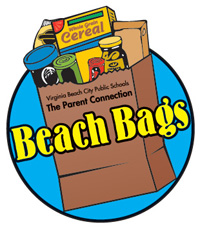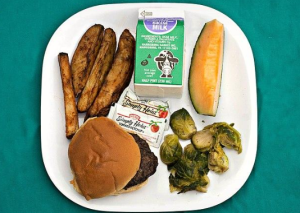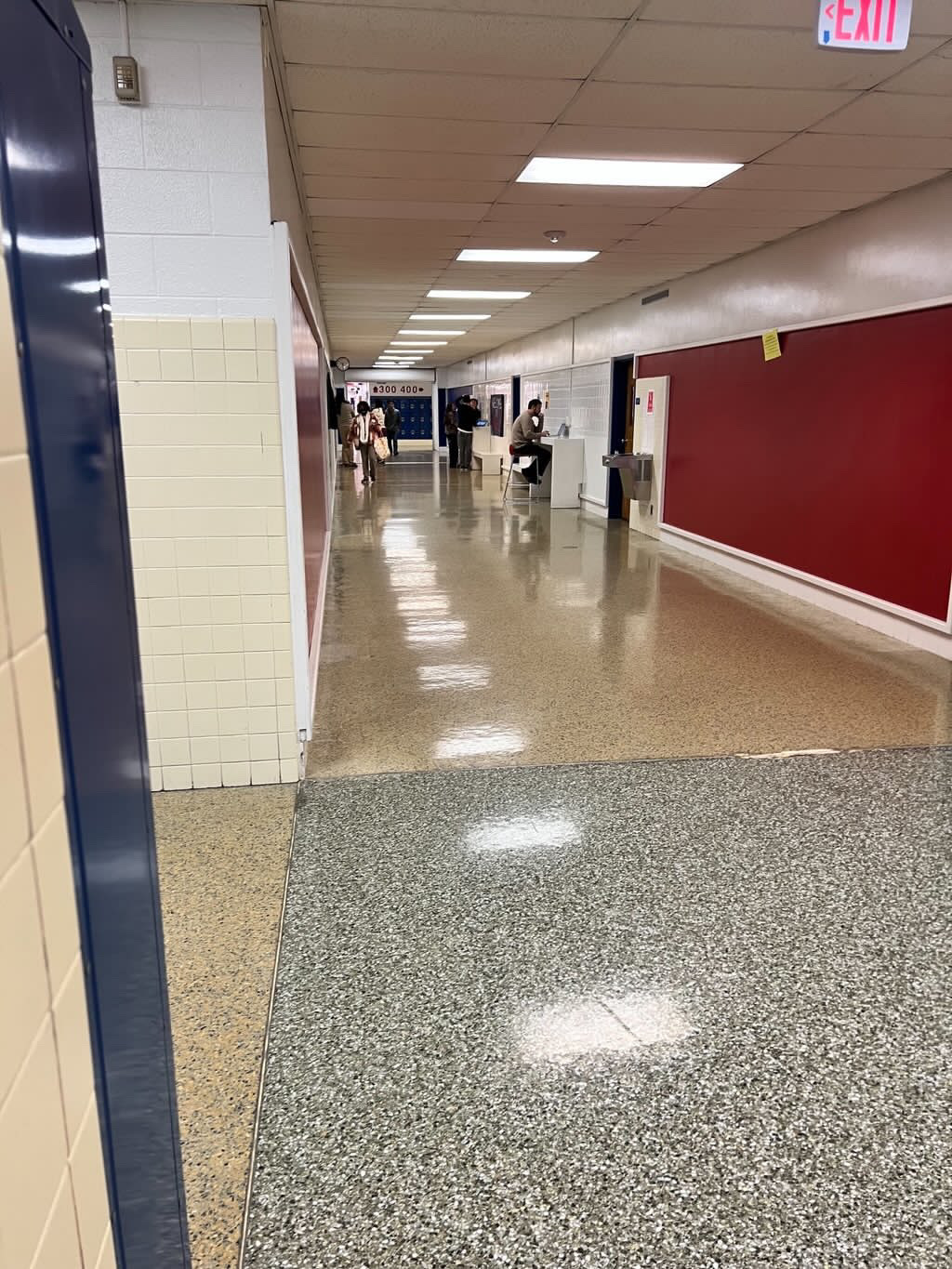Beach Bags Beat Student Hunger

May 30, 2014
The Virginia Beach City Public Schools Parent Connection is pledging to address the problem of food insecurity though their Beach Bags program. Food insecurity is defined by the United States Department of Agriculture as “households that are uncertain of having, or unable to acquire, enough food to meet basic needs of all their members because of insufficient money or other resources.”
Because students cannot take advantage of available free or reduced school breakfasts and lunches over weekends and during holiday breaks, Beach Bags are distributed in order to solve this problem. The bags are delivered every other Friday and before holiday breaks to ensure that eligible students have sufficient amounts of food while out of school.
“We deliver to 57 schools total, and each is included on one of three routes,” Jody Blaufus, an administrative associate for the VBCPS Office of Community Engagement, said. “Each route delivers approximately 200 bags, which are divided among the requesting schools.”
Lack of funding and donations keeps the Beach Bag from feeding children every single week, and expanding to reach more students in schools across Virginia Beach.
“The program depends entirely on donations from the public and community,” Blaufus said. “We try to hold two food drives per year; one is held citywide and the other is conducted through the military.”
Donations can be made in the form of a tax-deductible monetary donation to the Virginia Beach Education Foundation at vbef.org. Community members can also pack Beach Bags with the necessary items inside of unsealed paper or plastic bags, and deliver them unsealed to the School Administration building, building #6, in the municipal center on 2512 George Mason Drive. The bags will then be picked up and distributed by the VBCPS Parent Connection.
Each Beach Bag contains the ten following, nonperishable food items: two individual cereal boxes or bowls, two individual eight-ounce cartons of milk, two boxed or canned man course items (ravioli, macaroni and cheese, chunky soups), two four-ounce fruit cups or two juice boxes, and two snack items (granola bars, pudding cups, raisins).
The Beach Bags are packed in either paper or plastic bags, distributed by volunteers at the end of the day, and discreetly placed in students’ backpacks, to avoid embarrassment, or insensitive comments by fellow students.
“We have a crew of 4-6 that volunteer weekly to stuff the bags,” Blaufus said. “Supply Services then transports the bags to the schools requesting them. Each school has a point of contact there.”
A student in any grade can receive a Beach Bag if he is eligible. Students in elementary school, however, make up the bulk of the Beach Bag recipients.
“All grade levels from elementary, middle, and high schools have requested bags at one time or another,” Blaufus said.
The program’s purpose to combat student hungers expands to promote student achievement as well. Without proper nutrition, students’ immune systems weaken, causing them to have trouble fighting off illnesses, leading to increased school absences. Teachers and parents agree that the immediate effects of hunger include hindered student alertness and academic achievement. Nokidhungry.org points out the serious long-term implications of child hunger by linking a child’s lack of nutrition as a child to his financial success as an adult.
The Beach Bag program began as a joint effort of the Virginia Beach City Public Schools’ Office of School Social Work Services, Parent Connection, and the Food Bank of Southeastern Virginia in the fall of 2009. The program began serving approximately 200 students between kindergarten and fifth grade, but has since then grown to serve more students due to donations from individual families, churches, and school clubs.







